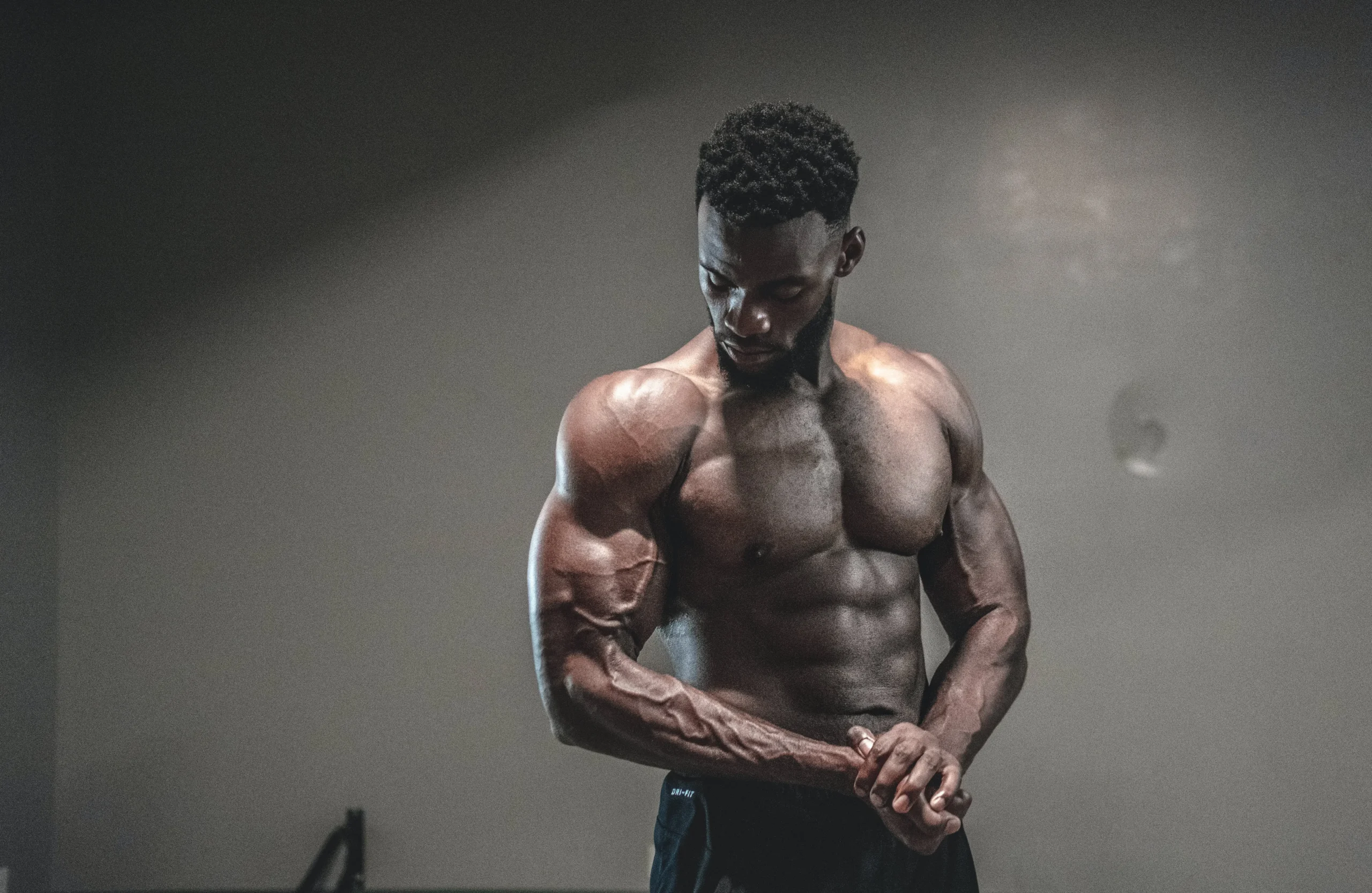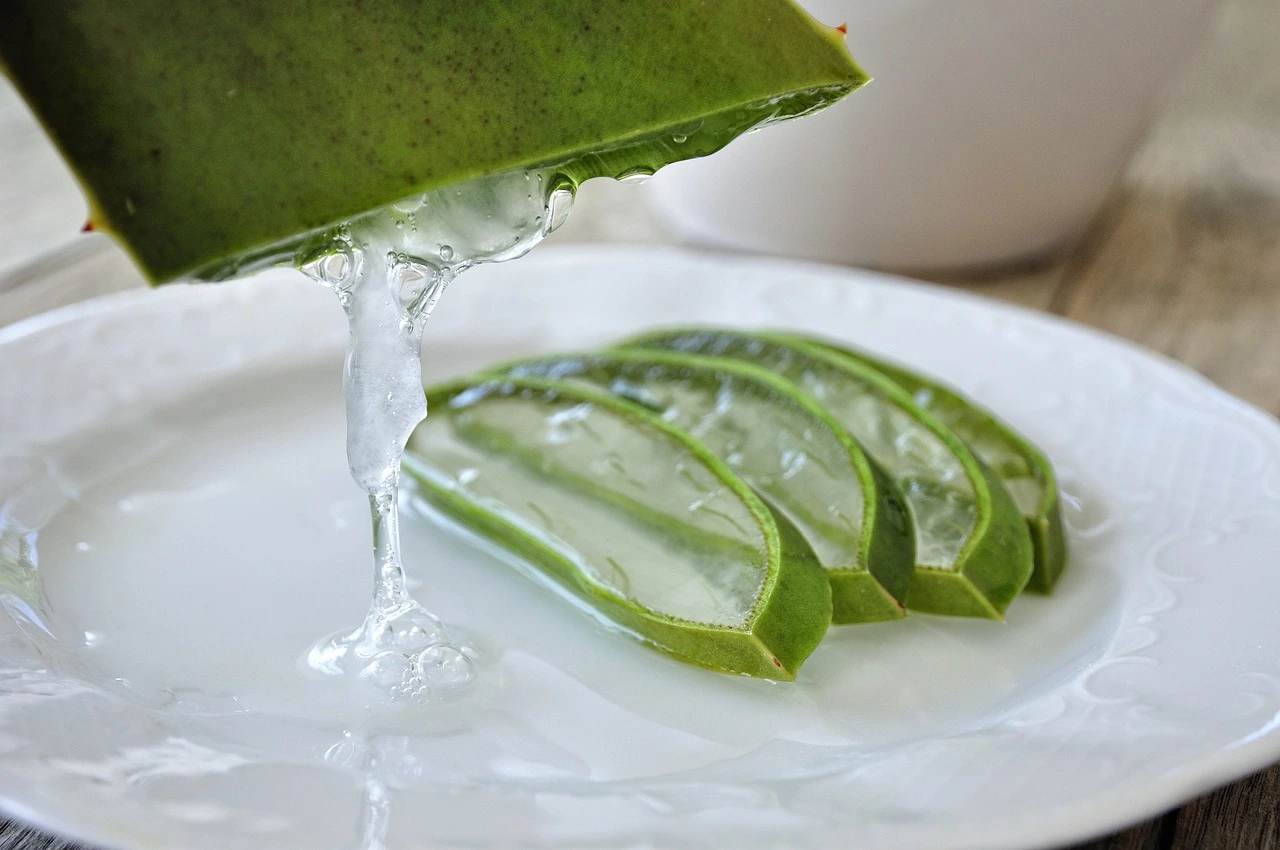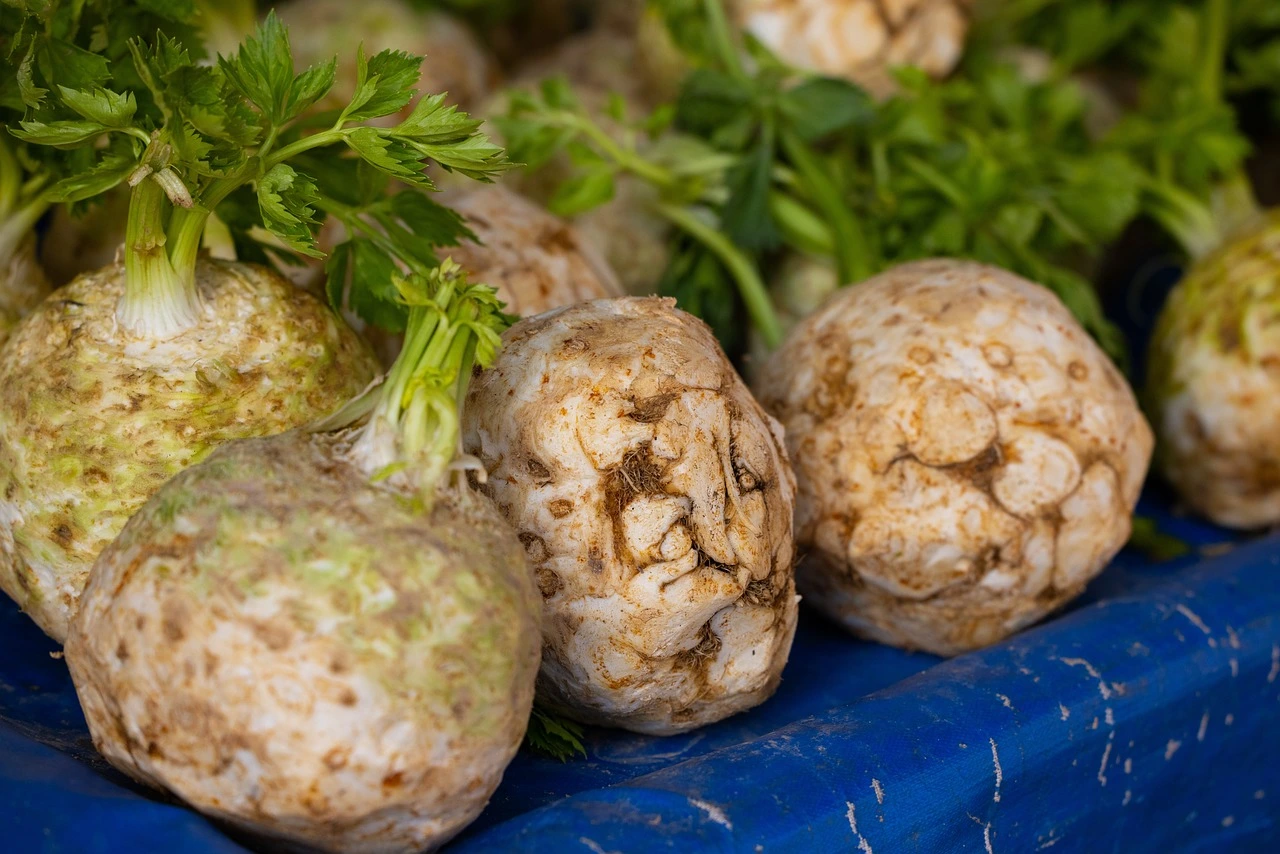Are you looking to pack some serious muscle to your physique? Then it’s time to take a closer look at your diet! The foods you eat play a crucial role in muscle building and overall fitness. Don’t worry, you won’t need any fancy supplements or expensive powders. Check out these top 10 muscle-building foods and start fueling your gains!
Why is Muscle Building Important?
Muscle building is crucial for a variety of reasons. Firstly, it greatly enhances physical performance and athletic abilities. Secondly, it aids in boosting metabolism, leading to weight loss and maintaining a healthy body composition. Additionally, muscle building is essential in preventing injuries and improving posture. Lastly, it promotes bone health and reduces the risk of osteoporosis. These reasons emphasize the significance of muscle building in achieving and maintaining a fit and healthy lifestyle.
Sarah, a dedicated athlete, began focusing on muscle building to enhance her performance in track and field. She noticed significant improvements in her speed, endurance, and overall strength. Not only did she excel in her sport, but she also gained confidence and improved her body composition. Sarah’s commitment to muscle-building proved to be a game-changer in her athletic journey.
What are the Key Nutrients for Building Muscle?
When it comes to building muscle, proper nutrition is essential. In this section, we will discuss the key nutrients that are crucial for muscle growth and development. These include protein, carbohydrates, and healthy fats, which all play different roles in supporting muscle building. By understanding the importance of these nutrients, you can optimize your diet and reach your fitness goals more effectively. Let’s dive into the details of each nutrient and why they are essential for building muscle.
1. Protein
Protein is an essential nutrient for building muscle and should be a part of your diet. Here are some simple steps to incorporate protein into your meals:
- Choose lean protein sources like chicken breast, salmon, eggs, Greek yogurt, and tofu.
- Include protein-rich plant-based options such as quinoa and nuts/seeds.
- Make sure to include protein with every meal to provide a steady supply for muscle synthesis.
- Consume an adequate amount of protein based on your body weight and activity level.
Fact: Protein is composed of amino acids, which serve as the building blocks for muscle tissue.
2. Carbohydrates
Carbohydrates play a crucial role in building muscle as they provide the necessary energy for workouts and aid in muscle recovery. Opt for whole grain options such as quinoa and sweet potatoes, which are excellent sources of complex carbohydrates that release energy slowly. These options also provide fiber, vitamins, and minerals that are essential for overall health.
In addition, fruits and vegetables are great sources of simple carbohydrates that provide quick energy. To optimize muscle growth, it is important to consume carbohydrates alongside protein-rich foods. However, it is important to be mindful of portion sizes and choose high-quality carbohydrates to avoid consuming excessive calories. Remember, balance is key to achieving your muscle-building goals.
3. Healthy Fats
Healthy fats are crucial for building muscle as they provide energy, support hormone production and aid in the absorption of nutrients. Follow these steps to incorporate healthy fats into your diet:
- Incorporate sources like avocados, nuts, and seeds into your meals and snacks.
- Add a tablespoon of olive oil or flaxseed oil to your salads or cooked vegetables.
- Include fatty fish like salmon or trout in your diet a few times a week.
- Use natural nut butter such as almond or peanut butter as spreads.
- Avoid trans fats found in processed and fried foods.
Remember to consume healthy fats in moderation as part of a well-balanced diet.
What are the Top 10 Foods for Building Muscle?
Building muscle requires a combination of intense workouts and proper nutrition. While there are many foods that can aid in muscle growth, some stand out above the rest. In this section, we will explore the top 10 foods that are essential for building muscle. From lean proteins to complex carbohydrates, these foods provide the necessary nutrients to support and enhance muscle growth. Each sub-section will highlight a specific food and its unique benefits for building muscle.
1. Chicken Breast
Chicken breast is a popular food choice for building muscle due to its high protein content and low-fat content. Here are some steps to prepare this lean protein for muscle building:
- Choose organic or free-range chicken breast for better quality.
- Trim any visible fat to reduce overall fat intake.
- Marinate the chicken breast with herbs and spices to enhance its natural flavor.
- Grill or bake the chicken breast to maintain its nutritional profile.
- Monitor the cooking time to avoid overcooking and drying out the meat.
- Allow the chicken breast to rest before cutting to retain its juices.
Remember to pair chicken breast with other nutrient-rich foods like vegetables and whole grains to create a balanced meal. Enjoy your muscle-building journey with delicious and nutritious options of chicken breast.
2. Salmon
Salmon is a nutrient-rich food that can greatly aid in building muscle. This is because it contains high levels of protein and omega-3 fatty acids. Just a 3-ounce serving of salmon provides approximately 22 grams of protein, which is crucial for the growth and repair of muscles. Additionally, the omega-3 fatty acids present in salmon can help decrease inflammation and enhance muscle recovery.
To add salmon to your diet, consider trying grilled or baked salmon fillets, salmon salads, or even salmon sushi rolls. Making salmon a regular part of your meal plan a few times a week can greatly support your muscle-building goals.
3. Eggs
Eggs are an excellent food for building muscle due to their high protein content and nutrient profile. Here are some steps to incorporate eggs into your muscle-building diet:
- Include eggs in your breakfast to kickstart your day with a protein-rich meal.
- Try different cooking methods like boiled, scrambled, or poached to keep things interesting.
- Pair eggs with whole-grain toast or vegetables to add complex carbohydrates and fiber to your meal.
- Consider consuming both the egg whites and yolks as the yolks contain essential vitamins and healthy fats.
- Monitor your cholesterol intake if you have specific dietary restrictions or concerns.
Pro-tip: To boost your muscle-building efforts, consider adding other protein sources like chicken, fish, or plant-based alternatives to your diet.
4. Greek Yogurt
Greek yogurt is a highly recommended food for building muscle due to its high protein content. With approximately 23 grams of protein per serving, it supplies essential amino acids necessary for muscle growth and repair. In addition, Greek yogurt is a good source of calcium, which helps with muscle contractions, and probiotics that promote gut health.
To support muscle building, aim to consume one to two servings of Greek yogurt per day as part of a well-rounded diet that includes other protein sources and essential nutrients for optimal muscle growth and recovery.
5. Quinoa
Quinoa is a versatile and nutrient-rich grain that can be a valuable addition to a muscle-building diet. Here are some steps to incorporate it into your meals:
- Cook quinoa according to package instructions.
- Use it as a base for salads, mixing it with vegetables and lean proteins like chicken or tofu.
- Make quinoa bowls by topping cooked quinoa with roasted vegetables, avocado, and a source of healthy fats like nuts or seeds.
- Add it to soups or stews for added texture and nutrition.
- Use quinoa flour as a substitute for regular flour in baking recipes, like pancakes or muffins.
Quinoa has a rich history dating back thousands of years to the Incas, who considered it a sacred crop. It was known as the “mother grain” and played a crucial role in their diet and culture. Even today, this grain continues to be a popular and nutritious choice for those looking to support muscle growth and overall health.
6. Sweet Potatoes
Consuming sweet potatoes can greatly contribute to muscle building due to their high nutrient content and various health benefits. Here are some steps to incorporate sweet potatoes into your muscle-building diet:
- Include sweet potatoes as a starchy carbohydrate source in your meals.
- Enjoy them baked, mashed, or roasted for maximum flavor and nutrient retention.
- Pair sweet potatoes with a lean protein source like chicken or tofu for a well-balanced meal.
- Opt for sweet potatoes with the skin on them to maximize fiber intake and provide additional nutrients.
- Add sweet potatoes to post-workout meals to replenish glycogen stores and aid in muscle recovery.
- Experiment with sweet potato recipes such as sweet potato fries, sweet potato pancakes, or sweet potato hash for variety.
7. Lean Beef
Lean beef is a nutrient-rich food that can aid in muscle building. Follow these steps to easily incorporate lean beef into your diet:
- Opt for lean cuts of beef, such as sirloin or tenderloin, which are high in protein and low in fat.
- Add lean beef to your meals by grilling, broiling, or roasting it.
- Pair lean beef with other muscle-building foods like vegetables or whole grains for a well-balanced meal.
- Monitor your portion sizes to ensure you’re consuming an appropriate amount of lean beef based on your goals and activity level.
- Consider marinating lean beef to enhance its flavor and tenderness, without adding excess fat or calories.
8. Cottage Cheese
Cottage cheese is a fantastic food for building muscle as it is packed with protein. It is a great source of casein protein, which is slow-digesting and provides a constant supply of amino acids to aid in muscle repair and growth. Additionally, cottage cheese is rich in essential nutrients such as calcium, phosphorus, and B vitamins. By including cottage cheese in your diet, you can help facilitate muscle recovery and promote muscle protein synthesis. Try to incorporate a serving of cottage cheese into your meals along with other protein-rich foods to fulfill your daily protein requirements for building muscle.
9. Tofu
Tofu is an excellent food for building muscle as it is high in protein and can be used in many different ways. With approximately 10 grams of protein per 100 grams, tofu is a valuable source of plant-based protein for vegans and vegetarians. It contains all the essential amino acids necessary for muscle growth and repair. Additionally, tofu is low in saturated fat and cholesterol, making it a heart-healthy choice. It can be grilled, stir-fried, or blended into smoothies, making it a versatile ingredient in a variety of dishes. Adding tofu to your diet can aid in muscle development and promote overall health and wellness. Give it a try in dishes like tofu stir-fry or tofu scramble for a protein boost.
10. Nuts and Seeds
Nuts and seeds are crucial for muscle development due to their high protein and healthy fat content. They offer a convenient and nutritious snack choice for athletes and fitness enthusiasts.
Almonds, walnuts, and chia seeds are especially beneficial as they are rich in omega-3 fatty acids, which can reduce inflammation and aid in muscle recovery. Additionally, nuts and seeds are packed with essential vitamins, minerals, and antioxidants that support overall health.
Adding a variety of nuts and seeds to your diet, such as almonds, pumpkin seeds, and flaxseeds, can help promote muscle growth and improve athletic performance.
How Much of These Foods Should You Consume?
When it comes to building muscle, it’s crucial to not only eat the right foods but also consume them in the correct quantities. Here are some steps to help you determine the appropriate amount of these foods to consume:
- Calculate your daily caloric needs based on your goals and activity level.
- Determine your macronutrient ratios, with protein being a key component for muscle growth.
- Consult with a nutritionist or dietitian to create a personalized meal plan.
- Weigh and measure your portion sizes to ensure accuracy.
- Monitor your progress and make adjustments as needed.
Bodybuilders have long emphasized the importance of proper nutrition in muscle building. In the early 20th century, Eugen Sandow, also known as the “Father of Modern Bodybuilding,” advocated for a balanced diet rich in protein and whole foods. His approach laid the foundation for understanding the significance of consuming the appropriate amounts of muscle-building foods.
What Other Factors Contribute to Building Muscle?
When it comes to building muscle, diet is often the first factor that comes to mind. However, there are other important elements that contribute to building and maintaining muscle mass. In this section, we will discuss the other key factors that play a role in building muscle, including proper exercise, rest and recovery, and hydration. By understanding the importance of these factors, you can optimize your muscle-building journey and achieve your fitness goals.
1. Proper Exercise
Proper exercise is crucial for building muscle and achieving optimal results. To effectively incorporate exercise into your muscle-building routine, follow these steps:
- Set clear goals: Determine what you want to achieve and tailor your exercise routine accordingly.
- Choose the right exercises: Focus on compound movements that target multiple muscle groups, such as squats, deadlifts, bench presses, and pull-ups.
- Progressive overload: Gradually increase the intensity, weight, or repetitions of your exercises over time to continuously challenge your muscles.
- Ensure proper form: Maintain correct posture and technique to maximize muscle engagement and reduce the risk of injury.
- Vary your workouts: Incorporate different exercises and training methods to prevent plateaus and keep your muscles stimulated.
- Rest and recovery: Allow your muscles time to repair and grow by including rest days in your exercise schedule.
- Stay consistent: Stick to your exercise routine and make it a regular part of your lifestyle to see long-term muscle-building results.
2. Rest and Recovery
Rest and recovery are crucial for maximizing muscle growth and preventing injuries. Here are some steps to optimize rest and recovery:
- Get enough sleep: Aim for 7-9 hours of quality sleep each night to promote muscle repair and growth.
- Incorporate rest days: Allow your muscles time to recover by scheduling regular rest days in your training program.
- Manage stress: Chronic stress can hinder muscle recovery. Practice relaxation techniques like meditation or yoga.
- Eat a balanced diet: Provide your body with the necessary nutrients for recovery by consuming a well-rounded diet.
- Stay hydrated: Drink enough water to support muscle function and recovery.
Pro-tip: Listen to your body. If you experience excessive fatigue or muscle soreness, prioritize rest and recovery to avoid overtraining.
3. Hydration
Hydration plays a crucial role in muscle building. To ensure optimal hydration, follow these steps:
- Drink enough water: Aim for at least 8 cups (64 ounces) of water per day.
- Monitor urine color: Clear or pale yellow urine indicates proper hydration.
- Pre- and post-workout hydration: Consume water before and after workouts to replace fluid loss.
- Electrolyte balance: Include electrolyte-rich foods, such as bananas and coconut water, to replenish lost minerals.
- Avoid excessive caffeine and alcohol: These can dehydrate the body and hinder muscle recovery.
- Consider sports drinks: Opt for sports drinks during intense workouts to replenish electrolytes and carbohydrates.
- Listen to your body: Drink water when you feel thirsty, as thirst is a sign of dehydration.
Frequently Asked Questions
What are the top 10 foods for building muscle?
The top 10 foods for building muscle are chicken breast, fish, lean beef, eggs, Greek yogurt, quinoa, chickpeas, almonds, sweet potatoes, and brown rice.
Why are these foods considered the best for building muscle?
These foods are considered the best for building muscle because they are high in protein, which is essential for muscle growth and repair. They also contain other important nutrients like complex carbohydrates, healthy fats, and vitamins and minerals.
Can I still build muscle without these specific foods?
Yes, you can still build muscle without these specific foods, but they are highly recommended for optimal muscle growth and development. Other protein-rich foods can also be incorporated into your diet, but these 10 foods are known for their muscle-building properties.
How much of these foods should I eat to see results?
The amount of these foods you should eat will depend on your individual goals and body composition. Generally, it is recommended to consume 1 gram of protein per pound of body weight for muscle building. Consult a nutritionist or dietician for personalized recommendations.
Can these foods be included in a vegetarian or vegan diet?
Yes, these foods can be included in a vegetarian or vegan diet. Non-meat sources of protein such as quinoa, chickpeas, and Greek yogurt are great options for those following a plant-based diet. It is important to ensure you are getting enough protein from diverse sources in order to build muscle.
Are there any additional tips for incorporating these foods into my diet?
Yes, here are a few tips for incorporating these foods into your diet for muscle building: meal prep and plan ahead, include a variety of these foods in your meals, and stay consistent with your intake. Also, remember to pair these foods with a balanced exercise routine for optimal muscle growth and development.



